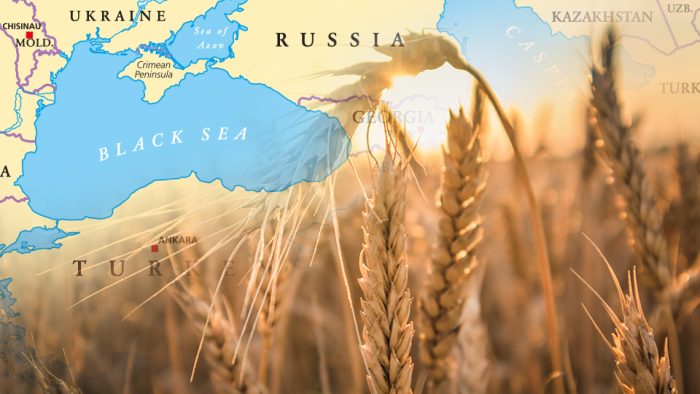The implications stretch beyond Ukraine’s borders, affecting vulnerable populations in the Global South and the stability of the global economy.

The Black Sea Grain Initiative, a vital platform for grain trade and food security, has been disrupted by Russia’s calculated withdrawal. This strategic move planned meticulously over several months, has significant implications not only for Ukraine but also for nations heavily reliant on its food supplies. Russia’s actions, aimed at securing its interests and leveraging power in the face of Western sanctions, have caused widespread disruption and potential ramifications in the global food market.
The Destruction of the Kakhovka Dam
A major step in Russia’s strategy was the destruction of the Kakhovka dam, leading to the obliteration of irrigation systems in key Ukrainian regions. Kherson, Zaporizhia, and Dnipropetrovsk, which relied heavily on this water source, now face severe water scarcity, posing a threat to agricultural productivity and food security. The impact extends beyond Ukraine’s borders, affecting nations that depend on Ukrainian grains to meet their food needs.
Blockage of Key Ukrainian Ports
In addition to the dam’s destruction, Russia blocked the three key Ukrainian ports essential for the Black Sea Grain Initiative. This action disrupted the shipping of commodities and significantly hindered grain exports. The situation worsened when recent Russian attacks on infrastructure in Odesa Oblast led to the destruction of 60,000 tonnes of grain at the Chornomorsk port, exacerbating the crisis. Russia’s Defense Ministry further escalated tensions by considering all ships travelling to Ukrainian ports as potential carriers of military cargo, drawing other countries into the conflict.
Russian Demands and Their Implications
Russia’s demands are clear: they seek to ensure the logistics, freight, and shipment of their grain and fertilizers. Additionally, they want Russian banks to be reconnected to the SWIFT financial messaging system and the resumption of spare parts supplies for agricultural machinery. At its core, this move is a well-calculated pressure tactic, aimed at gaining approval for Rosselkhozbank’s inclusion in SWIFT, effectively undermining existing sanctions. By achieving this milestone, Russia aims to establish a precedent for bypassing Western sanctions, enhancing its food commodity trade, and injecting much-needed liquidity into its economy.
Impact on the Global South
Russia’s willingness to trigger Food Crisis 2.0, with Ukraine being unable to export food, threatens the survival of populations in the world’s poorest countries. The Global South, heavily reliant on Ukrainian and Russian commodities, will bear the brunt of this crisis. As grain prices soar, countries may struggle to afford agricultural products, leading to significant increases in the cost of basic food items like flour, grains, and meat. This, in turn, poses risks to the global economy and could exacerbate food insecurity in vulnerable regions.
Leveraging Power over Africa and Asia
Manufacturing the conditions for Food Crisis 2.0 allows Russia to exert significant leverage over African and Asian nations dependent on their grain and agricultural exports. By holding these commodities hostage, Russia aims to pressure the West to meet its demands and secure further concessions.
Conclusion
Russia’s calculated withdrawal from the Black Sea Grain Initiative has far-reaching consequences for regional and global food security. The destruction of critical infrastructure, the blockage of key ports, and the looming threat of Food Crisis 2.0 are part of a deliberate strategy to advance Russia’s interests and challenge Western sanctions.
The implications stretch beyond Ukraine’s borders, affecting vulnerable populations in the Global South and the stability of the global economy. Resolving this crisis will require diplomatic efforts and cooperation between nations to ensure the efficient and equitable trade of essential food commodities.
(The author is a post-graduate student in International Relations at Kalinga University, Raipur. The opinions expressed are the author’s own)
Aayush Pal is a freelance writer on contemporary geopolitical developments. The views expressed in his work are entirely his own.
